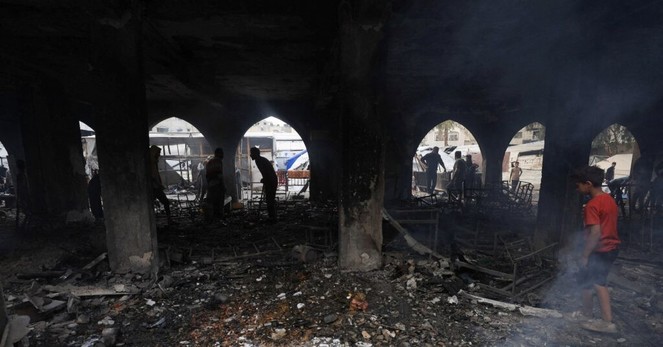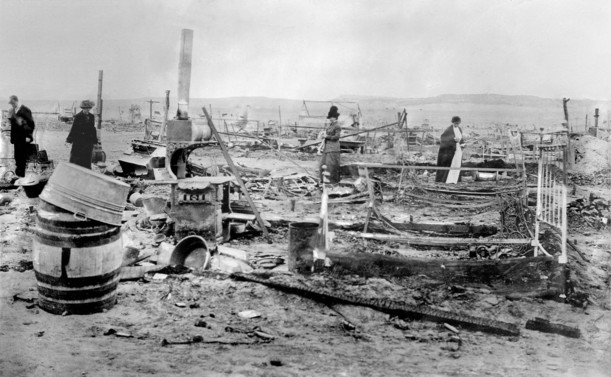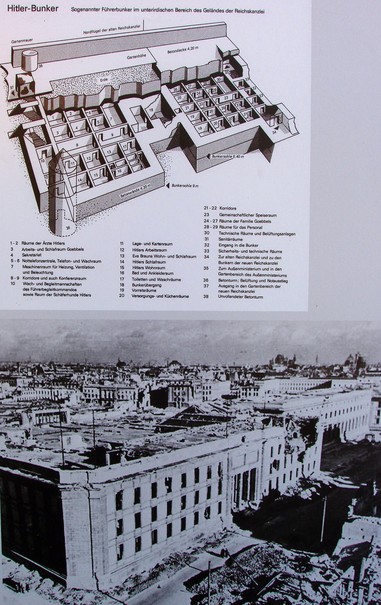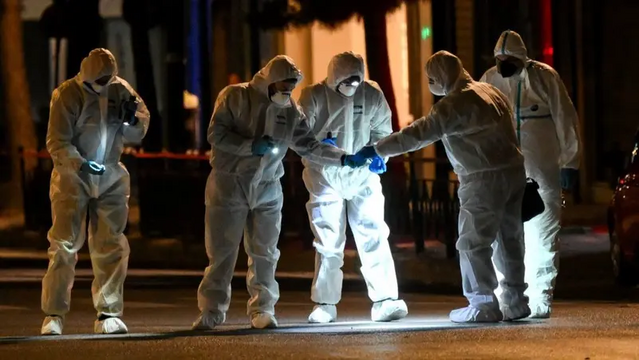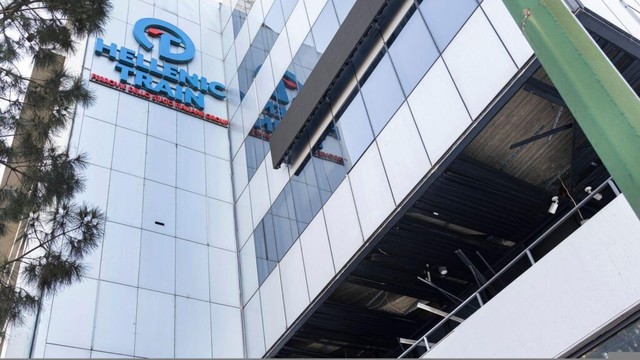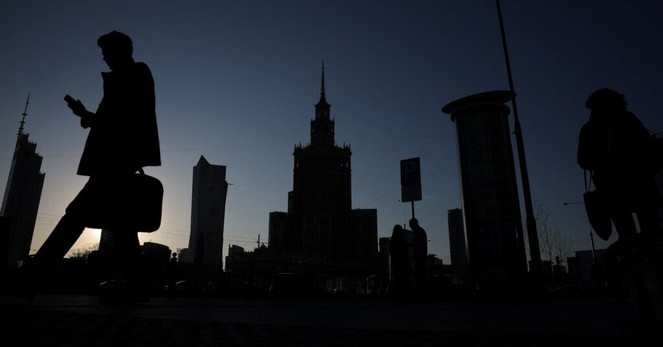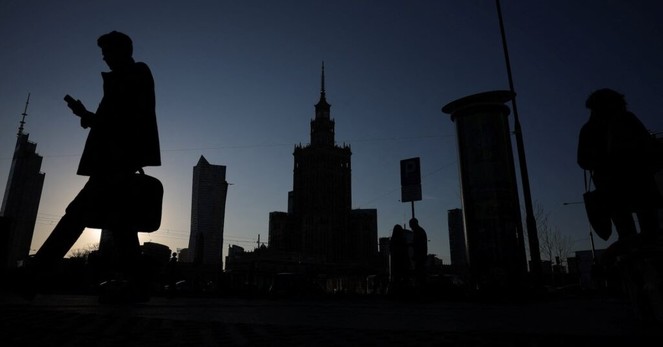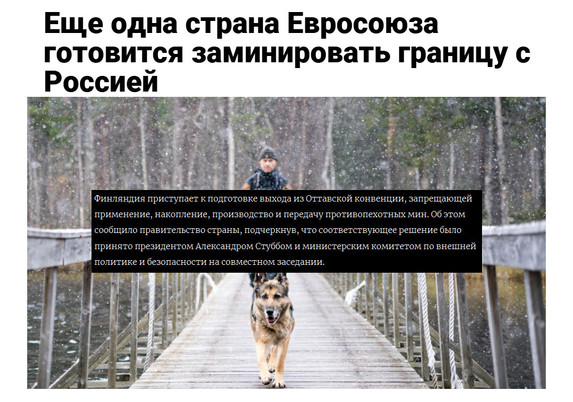ガザの学校に空爆、火災で避難民が犠牲 小児病院にミサイル | ロイター https://www.yayafa.com/2298198/ #AMERS #Asia #ASXPAC #bomb #CWP #DEST:NOJPTPM #DEST:NOJPWDM #DEST:NOJPZTM #EMEA #EMRG #Gen #HEA #HECA #IL #INDS #INDS08 #INTAG #JFOR #JLN #MEAST #MTPIX #MTVID #NAMER #News #News① #POL #PS #PXP #SWASIA #TOPCMB #TOPNWS #TPT #Trần #TRN #UN1 #us #VIO #War #World #WorldNews #ニュース #世界 #世界ニュース
Recent searches
Search options
#bomb
The #whispers are starting to become shouts.
#falseflag incoming this #spring or #summer.
On a sidenote, #AI may end up accounting for the highest number of #deaths this year, when all is said and done. AI is the next #nuclear #bomb, but worse.
#media will not tell the truth as it unfolds, but #Tiktok will.
#US #army #military #trump #war #washington #israel #iran #india #taiwan #navy #trade #china #USA #US #gulf #militaryindustrialcomplex #drone #warfare #1984
Today in Labor History April 20, 1914: National Guards opened fire on a mining camp during a strike in Ludlow, Colorado, killing five miners, two women, and twelve children. By the end of the strike, they had killed more than 75 people. The strike involved 10,000 members of the united Mine Workers of America (UMW), 1,200 of whom had been living in the Ludlow tent colony. Many of the “Guards” were actually goons and vigilantes hired by the Ludlow Mine Field owner, John D. Rockefeller, Jr. During the assault, they opened fire on strikers and their families with machine guns and set fire to the camp.
Mining was (and still is) a dangerous job. At the time, Colorado miners were dying on the job at a rate of more than 7 deaths per 1,000 employees. The working conditions were not only unsafe, but terribly unfair, too. Workers were paid by the ton for coal that they extracted, but weren’t paid for so-called “dead work” like shoring up unstable roofs and tunnels. This system encouraged miners to risk their lives by ignoring safety precautions and preparations so that they would have more time to extract and deliver coal. Miners also lived in “company towns” where the boss not only owned their housing and the stores that supplied their food and clothing, but charged inflated prices for these services. Furthermore, the workers were paid in “scrip,” a currency that was valid only in the company towns. So even if workers had a way to get to another store, they had no money to purchase anything. Therefore, much of what the miners earned went back into the pockets of their bosses.
In the wake of the Ludlow Massacre, bands of armed miners attacked mine guards and anti-union establishments. In nearby Trinidad, they openly distributed arms from the UMWA headquarters. Over the next ten days, miners attacked mines, killing or driving off guards and scabs, and setting building on fire. They also fought sporadic skirmishes with the Colorado National Guard. In June of 1914, a number of anarchists decided to seek revenge on Rockefeller. Alexander Berkman (a former lover, and friend, of Emma Goldman) helped plan the assassination at the New York Ferrer Center. This was also the home to the anarchist Modern School, which Berkman helped create. However, the bomb exploded prematurely, killing three anarchists. These events led to infiltration of the school and center by undercover cops.
You can read my complete article on Ludlow and the Colorado Labor Wars here: https://michaeldunnauthor.com/2024/04/20/the-ludlow-massacre/
And my complete article on the Modern School Movement here: https://michaeldunnauthor.com/2022/04/30/the-modern-school-movement/
> On May 13th, 1985 the #Philadelphia Police Department dropped a bomb on the home of #MOVE, a #Black-led back-to-nature group in #WestPhiladelphia. The #bomb and its fiery aftermath killed 11 people including 6 children. It destroyed 61 homes and left 250 people homeless.
Reporter Linn Washington has covered MOVE for more than 50 years. He weaves us through the tangled story of a cult-like leader, desperate neighbors, brutal #cops, and a city torn apart
•tags/cAmLs mine
https://podcasts.apple.com/us/podcast/move-untangling-the-tragedy/id1806703804
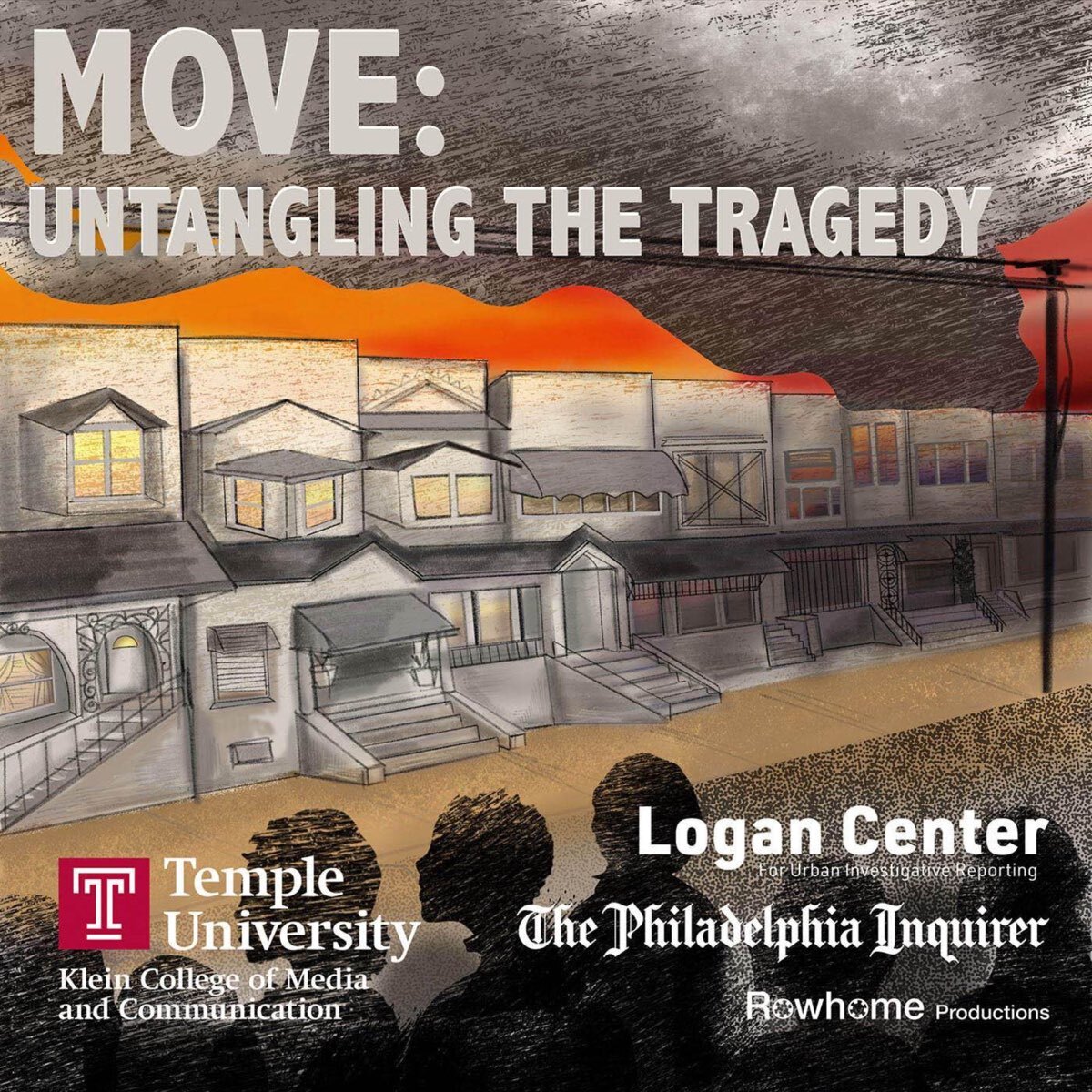
«Israel had planned 2 strike #Iranian #nuclear sites as soon as next mnth but was waved off by #Trump in recent weeks in favor of negotiating deal w/ #Tehran 2 limit its nuclear program, according 2 admin officials & others briefed on the discussions
Trump made decision aftr months of internal debate over whether 2 pursue #diplomacy or support #Israel in seeking to set back Iran’s ability 2 build a #bomb, @ time when #Iran has been weakened militarily & economically»
https://www.nytimes.com/2025/04/16/us/politics/trump-israel-iran-nuclear.html

Today's Flickr photo with the most hits was taken at the Topography of Terror, Berlin. It shows the bombed Reich Chancellery, which Hitler had ordered constructed along Voss Strasse. Beyond: the gardens, and the buildings on Wilhelm Strasse.
Top of the photo - a schematic of Hitler's bunker - beneath the garden.
#NewReichChancellery #berlin #Nazis #bunker #Hitler #WWII #bomb damage
“The nature of the new Israeli Uranium bombs: Evidence from Beirut”
by Christopher Busby in Al Mayadeen English
“Dr. Chris Busby presents evidence that Israel used a Uranium-based bomb in the 2024 Beirut attack that assassinated Hezbollah Sec Gen Sayyed Hassan Nasrallah, revealing airborne radioactive particles that pose long-term public health risks”

#KnowledgeByte: A #Carbon #Bomb is a large-scale fossil fuel extraction project that has the potential to generate more than one gigatonne of CO₂ over its remaining lifetime.
Know more about carbon bombs and why those must be defused?
https://knowledgezone.co.in/posts/What-is-Carbon-Bomb-62d8f4644a45a1341cddd1a6
Bomb blast outside offices of Greece rail accident company http://dlvr.it/TK933l #Bomb #BombThreat #Greece #RailNews
Acceptance of Responsibility for the Bombing Armed Attacks on the Ministry of Labor and Hellenic Train
We dedicate these two actions to the Palestinian people and their heroic resistance. Honor forever to Kyriakos Xymitiris and to all those who fell fighting on the path to the social revolution!
“Death on scaffolding, death on trains, capitalism feeds on blood”
A slogan born in the great demonstrations of March 2023 against state capitalist crime in Tempe.
On January 26, 2025 and February 28, 2025 respectively, hundreds of thousands of people demonstrated against the government of murderous anti-worker restructuring and Hellenic Train, a subsidiary of the Italian monopoly Ferrovie Dello Stato, which bears primary responsibility for the murder of 57 of our fellow citizens in Tempe on February 28, 2023.
The demonstrations and strikes are a contribution to the formation of our collective defense as a Class and at the same time, since they took place within a country with an active role in the American-Zionist genocidal war in Palestine, a practical act of solidarity with the heroic Palestinian people, who with weapons in hand show the way for the liberation of the peoples of the whole world.
In particular, the strike of February 28 was a response to the rivers of blood that are shed daily in the labor camps. A response to the unspeakable pain of our colleagues , our brothers and sisters, our mothers and fathers, our sons and daughters, our friends, who were lost or maimed in the struggle for a living wage. A response to the relentless class war that we live every day here.
The massacre of the working class in the workplace as a conscious policy of capital and the state apparatus
The numbers for deaths at work, even those given by official government statistics, which do not record a large number of incidents (e.g. immigrants) or show deaths as pathological, are relentless. In the last three years alone, over 600 workers have lost their lives and over 1000 have been seriously injured (amputations, permanent paralysis, severe respiratory and heart problems), while thousands of others have been injured and required medical treatment (with all the multifaceted costs that this entails ) in over 40 thousand work “ accidents”. Numbers that become much larger if we include the hundreds of deaths per year, according to estimates by independent international organizations, from diseases (cancer, cardiovascular) related to unhealthy working conditions ( e.g. permanent exposure to chemicals, exhaust gases) , and which the Greek state does not even record as such in violation of international guidelines.
The slaughter of the working class in the workplace has a name: it is called class exploitation, the pursuit of maximum profit from capital, the extraction of surplus value. It is called employer terrorism, it is called state policy to enhance the competitiveness of the labor market, it is called employer unionism. It is called memoranda, a policy of reducing public debt, it is called the EU fiscal stability pact, it is called the Achtsioglou law, the Hatzidakis law, the Georgiadis law. It is called poverty, unemployment, blackmail of survival.
PARLIAMENT is a mechanism of class domination. The ministers and deputy ministers, the general secretaries, the technocrats of SEV, the banks and the shipowners who staff the legislative committees for the establishment of anti – labor laws are very well aware of the consequences of the laws they vote on. They are fully aware that the abolition of collective labor agreements, mandatory unpaid overtime, the six-day workweek, the skinning of heavy and unhealthy workers, the linking of a productivity wage ( minimum wage law ) , the increase in retirement limits, the virtual abolition of labor inspection, the criminalization of strikes and the liberalization of dismissals, the abolition of basic safety standards, lead with mathematical precision to a skyrocketing number of deaths and injuries of workers. But this is their job, their role, that’s why they are in this position. To shield and reinforce the profitability of the capitalists with the blood of the working class: with the blood of builders, seafarers and dock workers, with the blood of motorcycle drivers and train and transport workers, with the blood of workers in call centers and catering, with the blood of workers in industries and public works, with the blood of migrant farm workers .
This is precisely why its figures and structures have been in the sights of the proletariat and the revolutionary movement throughout time. From the execution by city guerrillas during the Occupation of the fascist, pliant Minister of Labor Kalyvas to the bloody battles of the construction movement in the 1960s in front of it and the attacks on its structures during the Junta by anti-dictatorial organizations , and from its constant targeting by revolutionary organizations post-politics to its militant exclusions from labor unions.
The defense of the life of the working class is a condition for its political formation and counterattack.
The struggle against the generalized labor slaughterhouse is for the working class a struggle for life. A struggle for its present and future. A defensive and at the same time offensive-revolutionary struggle. No labor claim can be won if we cannot first effectively defend our own lives, and on the other hand, no substantial safeguarding of our gains can exist if this safeguarding is not perceived as a starting point for conquests and revolutionary leaps. We certainly have no illusions that safe working conditions can exist within the capitalist system. Work in capitalism was, is and will be inherently insecure as a legal theft of labor power by capital, as alienated labor, as wage slavery in the final analysis.
Until labor is liberated from the shackles of capital, or rather, in order to pave the way for it and the “society of freely associated producers ,” we must first of all return from our jobs alive and well. And for this to happen, our first concern cannot be anything other than the multifaceted development of the promising multinational proletarian current that is being born today in the bowels of capitalist production: from the call centers to the courier companies, and from the ports and factories to the strawberry fields and all the labor camps of wage slavery .
Because as historical experience has shown , it is precisely there, in the high temperatures of the class struggle where “the steel is tempered,” that the revolutionary class organizations of the future are born, those that will ground the revolutionary project in the present historical time, and will form in this direction the necessary political – military structure for the confrontation with the bourgeoisie, its state and its imperialist allies .
-The state capitalist crime in Tempi as a turning point in the class struggle
Similarly, like the labor slaughterhouse, the state capitalist crime in Tempi and its government management-cover-up in terms of mafia and social humiliation, brought the issue of class organization and defense, forms of struggle, and revolutionary perspective to the fore. For the development of class struggle in the post-memorandum era, Tempi was a turning point. They illuminated and at the same time condensed in an explosive manner central aspects of the Greek social formation. From the intensity of the capital-labor opposition and the -predatory- appropriation of social wealth by local and foreign capital, to the role of the state as a collective capitalist and the class content of bourgeois justice. And from the -insignificant- value of the lives of our class for capital and the -rotten- moral background of state government power to the power of popular mobilization, class solidarity and humanity. In particular, the crime in Tempi demonstrated what the memoranda, privatizations, policies to reduce public debt and deficits meant. What the national goals of remaining in the EU and the EMU meant. No matter how much the systemic propaganda strives to the contrary, since 28/2/2023, the “death-murder of 57 people in Tempi” has been imprinted in the social mood as an answer to the above questions, among other things.
-The debt of the OSE as a transfer of wealth from the working class to capital, with the state as guarantor
The privatization process of the public railway and the results it has signaled are revealing and leave no room for misinterpretation. Similarly, as happened in all public infrastructures, from OTE, PPC, EYDAP and forest firefighting, to public Health and Education, the depreciation and dismantling of the public railway was a specific state policy, integrated into the strategies of Greek capitalism and the EU. Public transport, like all public infrastructures, is for the Greek bourgeoisie a burden, an unnecessary burden that it always wanted to get rid of before the large public contractors, the banks and the cronies of the bourgeois parties and governments plunder it.
In any case, the term “public transport”, referring to the OSE, can only be used abusively, just as any use of the term “public” when it identifies enterprises of the bourgeois state is equally abusive. Because the OSE, since it was founded in 1971 by the Junta (retaining a large part of the junta’s administrative staff even after the Transition), was established under the terms of a private enterprise and certainly not as a service oriented towards promoting the public interest. That is why it was always subject to the capitalist accounting framework defined by the relationship between profit and losses, contrary to what would correspond to a public, albeit state-controlled, service that supposedly exists to serve the public interest, regardless of profit.
But what appeared as a loss to OSE, and how over the years these losses accumulated to create the organization’s enormous debt even after its bankruptcy and its sale to capital, and specifically to the Italian railway monopoly Ferrovie Dello Stato, of which Hellenic Train is a subsidiary? Beyond the provocative theft of public money by the OSE administrations appointed by the bourgeois government parties and closely linked to State contractors – which also gave birth to the socially detestable caste of the upper civil servant bureaucracy, as in the rest of the public sector -, what appeared as a loss was the difference between the meager income – from the relatively cheap tickets – in relation to the large expenses required for the railway to operate in an elementary manner. A deviation that the state duly covered, albeit to a limited extent, since the money it spent was enough for OSE to simply vegetate, money that was certainly not its own, but the people’s money that came from its heavy taxation. In reality, therefore, the stolen social wealth that the bourgeois state embezzled – at the same time that it exempted big capital from taxation – to substandardly finance public services, withholding of course a not inconsiderable amount for its people, was registered as OSE’s debt. And to whom was this debt of OSE and therefore of the state and ultimately of the people and the working class? But to the lenders of the Greek state, namely the banks and consequently the lenders of the Greek banks, namely European and mainly German, English and French finance capital, as well as of course American capital. The predatory nature of the capitalist imperialist system, which transforms the debt of capital to the working class into a debt of the working class to capital and the robbery of a country’s social wealth into a debt of the people of that country to imperialist capital, is revealing.
The privatization of OSE, as a state strategy, an EU imperative and a memorandum commitment
In this context, and while debts were accumulating while the railway continued to operate under the terms of past decades with an outdated and small network, the urban clamor for the modernization and consolidation of OSE and the EU’s demands for “enhancing the competitiveness of the transport and communications sector” as a prerequisite for Greece’s accession to the EU and later to the EMU, in reality constituted the battering ram for its dissolution and eventual privatization. In 1996, the now modernizing PASOK party would proceed with the first division of OSE, with the establishment of ERGOSE SA, which undertook the modernization of the network using private economic criteria, while five years later GAIOSE SA was established to exploit OSE’s real estate. In 2005, during the New Democracy government, the fragmentation of OSE deepened – after another huge transfer of wealth from the bottom up had previously taken place through the nationalization of OSE’s 4.5 billion euro debt – with the establishment of TRAINOSE SA, which took over OSE’s passenger and commercial routes, generously endowed , in fact, on the basis of EU directives, with tens of millions of euros. Three years later, in 2008, and while the then New Democracy MP Kyriakos Mitsotakis was speaking openly in Parliament about the need for the immediate privatization of OSE “in order to no longer burden the Greek people”, the then Minister of Transport K. Hatzidakis will lay the foundations for its reconstruction-privatization, unabashedly demagogueing about the circumstances of a serious railway accident in Bralos in the same year with 16 injuries, where again “human error” and “public misconduct” were cited as causes, and not the overloaded wagons for the purpose of profit in violation of every regulation, as the experts’ findings proved.
What the New Democracy party did not manage to implement due to the change of government in 2009, the new PASOK government will undertake to continue by transferring 49% of TRAINOSE to private individuals, until the bankruptcy of the Greek state in 2010 and its submission to a memorandum supervision regime by the EU, the ECB and the IMF create new dynamics. The full privatization of the railway will become a memorandum commitment of the Greek state towards its lenders, in order to disburse the installments of its “salvation” from the gigantic debt that had accumulated from a multitude of predatory procedures of similar content to those that created the railway’s debt, which in 2010 had hopefully reached 10 billion euros.
In the years to come, the railway will operate with a reduced and poorly paid staff, non-existent investments in new technologies and safety standards, completely discredited, so that in 2017 – under the SYRIZA ANEL government and with the consent of course of PASOK, ND – the privatization will finally take place, through the HRADF, in a sale for 45 million euros to the Italian monopoly Ferrovie Dello Stato. In other words, a public good was sold to capital for the aforementioned low price, which had been paid for with tens of billions of euros of stolen labor surplus.
This enormous transfer of wealth from the social base to capital, especially foreign capital, was attempted to be justified by the then Prime Minister Tsipras as an obligation imposed by the memorandums and that without this sale the Greek state would pay a fine of 600 million euros to the EU, while the payment of the installments would be conditional. And indeed it was so, except that we do not forget that the then government was the one that had voted for the third memorandum, annulling the sweeping popular anti-memorandum will of July 2015, just as we do not forget that he himself had publicly expressed himself positively about privatization, emphasizing that in the sales contract the Italian monopoly was expected to make productive investments of 600 million euros in the coming years. However, no investment was made – in fact, there was no control in this regard, lest the new investors become dissatisfied – despite two very serious railway accidents, the first in Serres in 2016 with two deaths and the second in Adendros, Thessaloniki, with three deaths. Accidents that had highlighted the lack of even basic safety standards, light signaling, remote control, the European ETCS system, single track on a large part of the network, etc., according to the clear complaints of the workers since then. Difficulties that had highlighted the scandal of the non-implementation of the famous contract 717 of 2014 worth many millions of euros, a contract with which much of what was necessary for the safety of the railway would have been implemented, but which was deliberately undermined by the private – in essence – ERGOSE and the competent state government officials (ministers, general secretaries) in order to keep OSE discredited, while the contract funds were the subject of provocative embezzlement by the ERGOSE administration.
Thirsty for services to big capital after almost 5 years away from governance and its income, New Democracy, the historically pre-eminent party of the Greek bourgeoisie, will deepen its policy of privatization and its policy of “everything to capital”, in all sectors. In particular, with regard to the railway, the government will boast about the positive balance sheets that the privatized railway of state subsidy and state-written debt was now showing, but also about its “modernization and safety”, despite the constant complaints of workers about the miserable state of the network, the non-implementation of the 717 contract and the inappropriate type of many trains used by Ηellenic Train. To reward it for its services, the New Democracy government will arrive in July 2022 to sign a contract with Hellenic Train by which the Greek state undertook to pay over 60 million euros annually for 15 years (over a billion euros in total), among other things, for the development of the network’s barren lines – something that never happened – while by law it exempted the company from almost all of its obligations of 600 million, which it had undertaken when the sales contract was signed in 2017. A law that was unabashedly accompanied by euphoric statements from the government and the competent Ministry of Transport headed by Costas Karamanlis about the “new era in railway services and safety”.
Crime in Tempe, the government and Hellenic Train
From there on, everything was predetermined. Hellenic Train, heavily financed and free from any trace of formal restriction, and with a government ruthless in serving its interests by its side, could now devote itself unfettered to what is defined by the DNA of every capitalist enterprise. That is, to the pursuit of maximum profit, in that field where, as Marx said, “there is no crime that capital is not capable of committing and no human law that it cannot trample on.”
So on February 28, 2023, in circumstances that had been approached several times in the past, a commercial and a passenger train collided head-on in Tempe, resulting in the death of 57 of our fellow human beings, working class people. Mothers, fathers, sons, daughters, grandmothers, grandfathers. Young people, students, workers, train drivers, immigrants, pensioners.
The country’s railway network, which still operated on single lines, in the absence of any investment for its development, “as a cost that burdens the positive balance sheets of the company”, was not equipped with either light signaling, or remote control, or of course with the modern means of preventing opposing traffic on a single line. These too constituted “costs that were counterproductive for competition”. The management of Hellenic Train and of course the government and the Ministry of Transport knew very well what these criminal deficiencies meant. They knew very well that without all these systems, the railway, understaffed due to staff cuts and without safety infrastructure, was destined at some point – even on the basis of a human error due to the lack of training and the over-intensive work of the employees – to bring many fatal accidents. And of course, woe betide if in 2023, with this development of production capabilities, the issue of the safety of hundreds of people is left exclusively to the human factor, without multiple safety controls that would nullify the result of an error. However, these controls did not exist, with full awareness on the part of Hellenic Train that such a thing is equivalent to direct exposure of the passenger public to death. And of course with full awareness on the part of the Ministry of Transport, which through the mouth of K. Kramanlis, slandered the workers as “spoiled” – as today the Minister of Health calls the struggling health workers – when they exposed to him the huge safety gap, the miserable working conditions and the non-implementation of contract 717.
Certainly the attitude of Hellenic Train and the government is completely compatible with their “being”. And certainly one cannot expect sensitivity for the lives of the people, from those who have systematically robbed them for years. Unscrupulous criminal capitalists are the owners of Hellenic Train, the Italian state monopoly Ferrovie Dello Stato. Una faca una raca with our respective “our” murderers of the working class: the shipowners, the industrialists, the bankers and their political representatives, with many of whom it also collaborates closely. And of course Ferrovie Dello Stato is flesh from the flesh of the always fascist at its core – and openly today – Italian state and the imperialist Italian big bourgeoisie with its spheres of influence in North Africa and the Mediterranean and the central position in the European industrial division.
A monopoly with organic relations with the NATO war machine and the Zionist state that murders Israel, as evidenced on the one hand by its business with military industries that supply NATO and on the other hand by its relations with the Zionist ZIM, the main carrier of arms to Israel, as well as with the Zionist state itself for which it undertakes numerous commercial transports, which is why it maintains offices in Tel Aviv. A monopoly with a long history of class war against the Italian proletariat, which also bore the armed anti-violence on the part of the latter, during the years of the revolutionary confrontation in the 1970s in Italy.
The cover-up of the crime in Tempe as the government assuming political responsibility for it
The class nature of the crime in Tempe determined, as was to be expected, the terms of its political and judicial management by the government and Hellenic Train. Even before the blood had dried, they directly attributed the disaster to human error and the “chronic pathologies of the Greek state and public”, demanding in reality even greater freedom of movement for capital, more privatizations and new attacks on whatever public infrastructure remains. They quickly swept the scene of the disaster under government orders – indifferent to the piles of dead bodies – and in violation of every protocol, thus significantly complicating the investigation in order to cover the various responsibilities of Hellenic Train, including those for the enormous fireball that cost the lives of passengers, responsibilities that could reveal serious aspects of the connection between the state, capital, Hellenic Train and illegal-black capital. They removed from the framework of criminal liability, through their own justice, the management of Hellenic Train and the Ministry of Transport, as well as of course all those responsible over the years, senior government and state officials, who contributed to the railway being in the exact situation it was in on 28/2/2023: that is, a railway that is a public danger.
In reality, we are not even talking about a cover-up here, but about assuming responsibility for the murder of 57 people. Because when the owning company that is clearly responsible for the crime is not simply not prosecuted, but remains at the helm of the railway, then we are certainly talking about assuming political responsibility by the government, capital and the supervising EU, through civil justice, in its historically familiar role of the latter covering up the crimes of the system (from the grandiose sycophants of the occupation and the torturers of the Junta, to the murderous capitalists today and their executive organs, the security forces). An assumption of responsibility that becomes even more deafening when even today the elementary security systems have not been installed on the railway, as demonstrated by numerous incidents, most notably this one in Agioi Anargyri a few months ago, where luckily we did not have another head-on collision of trains full of passengers. Which becomes even more deafening when the EU continues to make its budgetary programs for Greece dependent on the course of privatizations in transport, while appointing Mitsotakis’ chosen one, Tzitzikostas, as EU transport commissioner, essentially as a guarantor of the cover-up of the crime in Tempi.
In practice, today the government, the state, capital, the judiciary, the entire domestic system of power, say with bottomless cynicism to the entire society: “this is the operating framework of the system in which you live”. Similarly, like the dead in the labor camps, similarly, like the dead in Pylos, similarly, like the dead in the fires and floods, similarly, like the dead in the police stations, similarly, like the abused and murdered women of the trafficking rings, similarly, like the genocide in Gaza in which the Greek state actively participates, the dead in Tempi are the necessary blood sacrifice for the system to exist and reproduce. Just as the slogan of the demonstrations in March 2023 said: “Death on the scaffolding, death on the trains, capitalism feeds on blood”.
The fascism of the domestic capitalist political system and the opposing class awe that struggles to form
The rulers believed that with the above line – a mixture of bourgeois neoliberal arrogance and far-right brutality – they could impose themselves against a society severely wounded by the defeats of the recent past and exhausted by the daily battle for survival. However, they were resoundingly proven wrong. The great social outbreak of March 2023, with three weeks of mobilizations with many hundreds of thousands of people throughout the country , which achieved the synthesis of a multitude of political practices (demonstrations, major strikes – one of which was even organized from below without the employer’s GSEE, occupations, clashes – street battles) was the first resounding response. A response that obviously drew on the legacy of the remarkable rearguard battles of the previous period (pandemic-health crisis, hunger strike of the revolutionary D. Koufondinas, labor struggles, insurgent events in Nea Smyrni), and which opened a serious rift in the relations of social representation, which fueled various political processes and dynamics, visible and underground, that would eventually find their way to manifest themselves again. The 2023 elections with the emphatic victory of New Democracy did not close this rift, nor did they certainly mean, as unfortunately and not a few voices within the movements claimed, that there had not even been a rift and that society had accepted its submission. Alas, with over 45% abstention, elections can be the absolute indicator of the orientations of a social formation. And in any case, what the elections showed was that this rift exists, it’s just that one side is coherent, having created around itself, on the basis of some relative benefits that it can still marginally offer, a strong social coalition with petty and middle-class strata as well as with backward sections of the working class, as the bourgeois power has always done. In contrast to our side, which continued without organizational preparation corresponding to the intensity of the attack and with political discourse often incapable of giving necessary transitional goals (e.g. lifting privatizations) strategic impetus, while failing to listen in depth to the universal demand for justice and therefore to give it the political class content that corresponds to it, gradually even going so far as to put the crime in Tempi in second place among its priorities.
Almost two years later, in January 2025 – and while the politically significant solidarity mobilizations in Palestine have intervened – the intensification of the class struggle will unleash unprecedented dynamics. An audio document was enough to capture the last words of the young people who were dying from lack of oxygen on the fatal train (and thus shed light on the horrific circumstances of their death and the provocative lies of those in power). The huge demonstrations of January 26 throughout the country were the confirmation that the divisive intersection centered on Tempi not only exists, but has much greater depth, seeking the organization and political content to become a social explosion and class uprising.
The system of power, in panic, not waiting for the development and seeing the popular current threatening it with overthrow, mobilized all its class hatred, revealing to its full extent its rotten value base, turning without hesitation against the relatives of the dead, practically the dead themselves, practically the entire society, telling them in reality: “We will kill you and you will bow your heads!” But this is in reality the speech of a regime, more correctly the speech of a fascist regime that demands through force mass social humiliation and submission.
If we want to face reality, what the government and its bosses (local and foreign) attempted to do since January 26, 2025 – and much earlier of course – was to impose a fascist regime on the country, a regime that they have been diligently establishing for years through specific movements (repressive murderous management of the pandemic, wiretapping, employer and state terrorism, transformation of the country into a vast American base, alliance with Israel). Because only as a fascist regime can a condition be perceived – and is perceived today by significant sections of the people – where the authorities will murder en masse and openly cover up the murderers, while simultaneously dogging the memory of the dead, slandering their relatives and suppressing with murderous instinct the people who demonstrate in the streets. Precisely because only such a regime can today guarantee the needs of Greek capitalism in the destabilized international environment of intensifying antagonisms (interstate and imperialist), the new economic and fiscal crisis and generalized social discontent, and of course only such a regime can effectively serve the interests and plans of its imperialist protectors (the USA and the EU) and Israel.
Practically speaking, then, the dilemma in which we are now called upon to position ourselves, a dilemma to which the historic strike-uprising of February 28 throughout the country gave an equally historic answer, is clear. It is the same dilemma, albeit with different proportions, as that which the peoples and the proletariat of the whole world face when they are faced with the danger of tyranny: “Chains or weapons”. Let us decisively choose the latter!
We dedicate these two actions to the Palestinian people and their heroic resistance.
Honor forever to Kyriakos Xymitiris and to all those who fell fighting on the path to the social revolution!
Revolutionary Class Self-Defense
Source: Athens Indymedia
https://www.wacoca.com/news/2497707/ 焦点:「化粧品と性玩具」の小包が連続爆発、欧州襲う破壊工作の実態 ロシア関与の指摘 | ロイター ##war #AMERS #ANLINS #Asia #ASXPAC #BA... #BALT #BOJJ #Bomb #ca #CEEU #CISC #CWP #de #DEST:NOJPTPM #DEST:NOJPWDM #DEST:NOJPZTM #EEU #EMEA #EMRG #EREP #EU #EUROP #EZC #GB #Gen #INSGHT #INTAG #JFOR #JLN #LT #NAMER #NASIA #NEWS1 #PL #POL #Ru #Russia #SeeU #TOPCMB #TOPNWS #TRN #UA #US #WEU #ロシア
https://www.walknews.com/861412/ 焦点:「化粧品と性玩具」の小包が連続爆発、欧州襲う破壊工作の実態 ロシア関与の指摘 | ロイター #AMERS #ANLINS #ASIA #ASXPAC #BA #BALT #BOJJ #BOMB #CA #CEEU #CISC #CWP #DE #DEST:NOJPTPM #DEST:NOJPWDM #DEST:NOJPZTM #EEU #EMEA #EMRG #EREP #EU #EUROP #Europe #EuropeNews #EZC #GB #GEN #INSGHT #INTAG #JFOR #JLN #LT #NAMER #NASIA #NEWS1 #PL #POL #RU #SEEU #TOPCMB #TOPNWS #TRN #UA #US #WAR #WEU #ヨーロッパ #ヨーロッパニュース #欧州
From #AnnafromUkraine @AnnafromUkraine@youtube.com
FAR EAST ON FIRE, #ORYOL REGION #MISSILE ALERT Vlog 1009: War in #Ukraine
In #Komsomolsk-on-#Amur, located in Russia’s #Khabarovsk Krai, a major fire broke out at an oil #refinery.
An #explosives plant was damaged as a result of yesterday’s #UAV attack on #Dzerzhinsk, #NizhnyNovgorod region in #Russia.
A #FAB #bomb fell from a Russian aircraft right in front of a civilian's car in Russia’s #Belgorod region.
1/2
Production in front of the work “Harbor Entrance” (1916) by Erich Heckel (1883–1970). The work was realized in the painting depot of Museum Kunst der Westküste (Föhr). The artist holds a 100-pound US aerial bomb under her arm which was recovered from the North Sea. The work is part of the artist´s ongoing series "Seascapes".
In the German North and Baltic Seas, there are contaminated sites of about 1.6 million tons of conventional munitions and 5,000 tons of chemical warfare agents dumped during World War II by military operations or afterwards by dumping (source: Federal Environment Agency Germany).
Realized with the help of SeaTerra GmbH.
[Swaantje Güntzel, SEESTÜCK IV / Museum Kunst der Westküste, Föhr, 2024,
Diasec, 80 × 120 cm]
Foto: Henriette Pogoda
Assistance: Joana Bacelar
#art #conceptualart #contemporaryart #kunst #konzeptkunst #zeitgenössischekunst #fotografie #photography #seascape #seascapes #seestück #seestücke #erichheckel #war #munition #worldwar2 #ww2 #marinedebris #seaterra #mkdw #museumkunstderwestküste #föhr #nordsee #ostsee #northsea #balticsea #museum #paintingdepot #painting #henriettepogoda #aerialbomb #bomb #zerscheller #hafeneinfahrt #fliegerbombe #ammunition #paintings #reddress #swaantjeguentzel #swaantjegüntzel
'We thought it was the end of the world': How the US dropped four nuclear bombs on Spain in 1966
In 1966, the remote Spanish village of Palomares found that the "nuclear age had fallen on them from a clear blue sky". Two years after the terrifying accident, BBC reporter Chris Brasher went to find what happened when the US lost a hydrogen bomb.
https://www.bbc.com/culture/article/20250404-how-the-us-dropped-nuclear-bombs-on-spain-in-1966
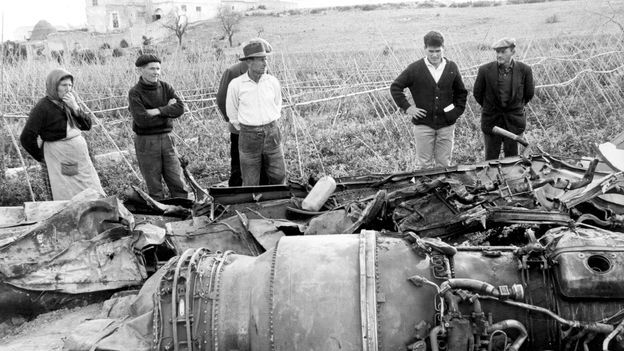
#dessin #crayon #drawing #pencil #art #coloredpencil #poisson #fish #bubulle #cool #balade #blues #balai #boue #blue #bouee #buoy #bombe #bomb
#dessin #crayon #drawing #pencil #art #coloredpencil #poisson #fish #bubulle #cool #balade #blues #balai #boue #blue #bouee #buoy #bombe #bomb
A #Queensland orthopaedic #surgeon treating injuries from a homemade pipe #bomb was fined $10,000 for sharing a photo of his patient’s #swastika-tattooed #penis to #WhatsApp: https://www.nzherald.co.nz/world/queensland-surgeon-fined-for-sharing-photo-of-patients-swastika-tattooed-penis/XVUASG4LK5GV5PNMNXZOVE5IDM/ #bizarre #odd #offbeat #strange #weird
Радять не кордон мінувати, а сам периметр, можна дістанційно. А до цього, нагадують, не забути їх всіх повернути із Заходу додому на болота #west #laptyecanda #bomb #border #mine


